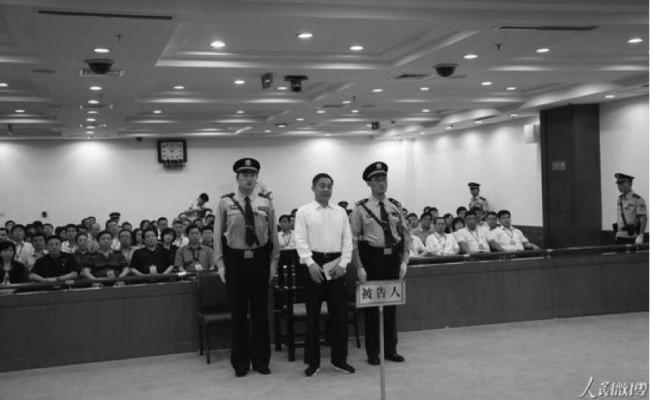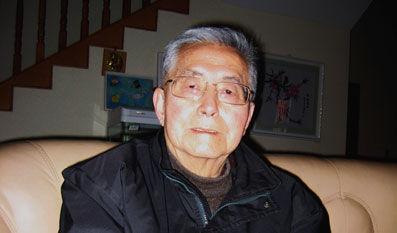Beginning in March 2012, the leadership of the Chinese Communist Party began cutting down to size the power of the regime’s massive domestic security apparatus, the Political and Legal Affairs Committee (PLAC), with hundreds of officials being arrested in an operation that still continues.
The climax of this campaign occurred in December, 2013. In mid-month, Beijing insiders confirmed that Zhou Yongkang, former head of the PLAC, was put under shuanggui, the abusive form of interrogation the Party uses on its own members.
Then, on Dec. 20, a one-sentence announcement on a Party website indicated that Li Dongsheng, the head of the notorious 610 Office, had met the same fate.
For over a decade, the PLAC was a second power center in the apparatus of the Chinese Communist Party (CCP), controlling the police, the Armed Police, the courts, and the procuratorate—nearly everything having to do with law enforcement.
From 2007 to 2012 Zhou was head of the PLAC and also a member of the Politburo Standing Committee, the elite organization at the top of the Party. He was one of the most powerful men in China. For the five years prior, Zhou was head of the ministry of Public Security, deputy head of the PLAC, and a Politburo member.
In 2009 Li Dongsheng was appointed to head the 610 Office, the CCP organ tasked with eradicating the spiritual practice of Falun Gong, for which he had served as the deputy director since its beginning in 1999. A few years after it was formed, the 610 Office was put under the PLAC. At the time of his arrest, Li also served as deputy minister of public security.
Both Zhou Yongkang and Li Dongsheng are creatures of former Party head Jiang Zemin, and the move against them and their associates also uproots the faction in the Party loyal to Jiang.
Aggressive Moves
The first blow against Zhou Yongkang and the PLAC’s power was struck in March 2012. Zhou’s handpicked successor to head the PLAC, Bo Xilai, was placed under house arrest by the Central Guard Bureau, the agency responsible for the security of the CCP’s top leaders. In September 2013 he would be sentenced to life in prison for bribery, corruption, and abuse of power.
When the new Politburo Standing Committee was announced in November 2012, no member of the security apparatus was on it, preventing the recurrence of someone combining authority over domestic security with a seat on the most powerful Party body, as Zhou Yongkang had done.
Aggressive and rapid moves were made against Zhou’s former associates and cronies in the beginning of 2013.
According to a report delivered in March 2013 by a former high-ranking official from the PLAC to the CCP’s leadership, in the previous three months 452 PLAC officials were either placed under shuangguai or arrested, including 392 from the Public Security Bureau, 19 from the Procuratorate, 27 from the judicial system, 5 from the department of justice, and 10 from non-public security departments. An additional 12 high-ranking officials took their own lives.
The report stated that while Zhou Yongkang was chairman of the PLAC, chiefs of police in different parts of China were often also secretaries of the PLAC and members of both the local Party committee and Standing Committee.
With no separation between authority over Public Security, the Procuratorate, and the courts, the power of the police went unchecked, and police officers turned arrogant and despotic, according to the report. This resulted in many Public Security police officers breaking the law themselves and committing serious offenses, the report said.
While the furious pace of early 2013 has not been maintained, there has been a steady drumbeat of moves to continue weakening the PLAC.
Among the most significant arrests was that of Cao Jianming. In early September, The Australian reported the procurator-general of the PRC’s Supreme People’s Procuratorate was under investigation. Cao was one of the most important officials in the PLAC during the tenure of Zhou Yongkang, and played a leading role in the persecution of Falun Gong.
On Oct. 4, Hong Kong media Apple Daily, citing information from Wind Magazine, stated that the former head of the Communist Party in western China’s Xinjiang Province, Wang Lequan, was under investigation for corruption by the Central Discipline Inspection Commission. Back when Zhou Yongkang was minister of Public Security, Wang and Zhou were close friends, and, when Zhou was promoted to the Politburo Standing Committee, Wang had found himself a reliable ally.
On Nov. 18, 2013 Chinese media reported that Xiao Shuangsheng, the head of the PLAC in the city of Langfang in Hebei Province was put under shuangguai.
On Nov. 21, the Chinese Supreme Court issued “Suggestions for the Creation of a Mechanism to Prevent Judicial Injustice,” which stated that the PLAC would not get involved in any judicial case unless it involved foreign affairs, national defense, and other special areas. The political clout of the PLAC, which formerly had no limits on its supervision of judicial cases, was thus further restrained.
Epoch Times has previously reported that the core offenses of Bo Xilai and Zhou Yongkang, and the presumptive trigger for the campaign against the PLAC, involved planning a coup against the CCP’s top leadership and carrying out systematic, forced organ harvesting from Falun Gong practitioners.
The CCP has so far covered up these crimes, although the hundreds of officials swept up in the campaign to weaken the PLAC may be implicated in one or both of them.
Translated by Frank Fang. Written in English by Stephen Gregory.
Read the original Chinese article.



